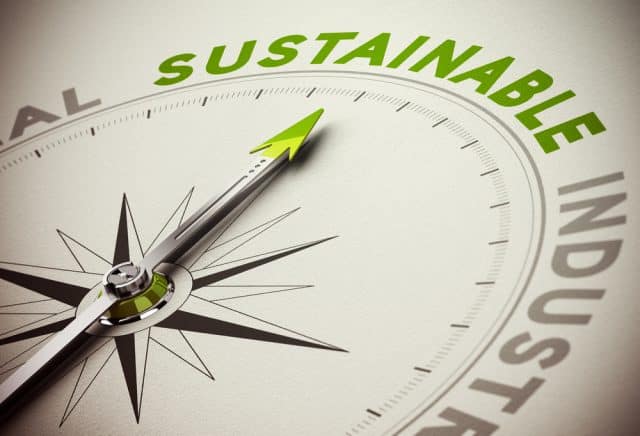Know the benefits of becoming a sustainable business

In business, sustainability refers to doing business without negatively impacting the environment, community, or society. Sustainability in an industry generally addresses two main categories: The effect business has on the environment and the effect business has on society.
Making environmentally conscious decisions is unavoidable for business and sustainability because it can impact the environment.
Economic planning and company operations are integrated into a sustainable business strategy, which benefits the corporation, its stakeholders, and society. Incorporating sustainability principles into a company's strategy will reduce its adverse effects on the environment and society. Moreover, a sustainable approach may also open up chances for the organization to improve its brand image and competitive advantage in the market.
Reduced costs
Sustainable business practices have an end game of reduced costs through conservation of resources and efficient operations. In most companies, reduction in running costs is mainly achieved by implementing energy-efficient strategies throughout their operations. For instance, companies could maybe opt to use renewable energy sources such as solar energy or install geothermal heating and cooling systems instead of using electricity.
Despite some concerns that adopting sustainable approaches is expensive and decreases income, the overall cost is decreased. Over time, lower utility expenditures will offset the high installation expenses. In addition, businesses get to enjoy increased productivity as a result of efficient energy use. As a result, the market will be able to produce competitively priced, environmentally friendly items to sell to customers.
Better waste management
For most businesses, waste management is a costly affair, and, consequently, businesses choose not to deal with their waste correctly and end up polluting the environment. Sustainable business practices strive to reduce waste and find better ways of managing it. Today, some prominent business entities turn waste into raw materials to manufacture an entirely new product. They do this through recycling.
In addition, sustainability calls for businesses to rework their entire manufacturing processes. Along with these recycling initiatives, the end effect is eventually less rubbish. For instance, the digital move aims to reduce paper and conserve forests and trees. Business reengineering is an endeavor by companies to guarantee that the least amount of waste is created throughout their manufacturing process.
More employees and investors
Individuals seek employment with businesses with significant environmental friendliness initiatives, especially the young generation conscious of environmental protection. As a result, people tend to work for environmentally conscious companies. Despite the shrinking labor pool, sustainable enterprises don't appear to be lacking in any way. On the contrary, employees are attracted to businesses that positively affect the environment.
For investors, the power to impact the environment positively through financial funding has become an ultimate goal. Due to the company's freedom from troublesome legal disputes and lawsuits, investors will also believe that their money is secure. Green businesses, therefore, have the advantage of finding investors easily. With more investors, these businesses are able to expand their operations and green product catalogue.
Business and sustainability mean better compliance with the regulation.
As the call for environmental protection continues with more people joining in, governments are now changing regulations. More governments are calling on businesses to have eco-friendly business practices. Companies that are already making greener choices will have an easy time complying with these regulations. On the other hand, some businesses will be forced to change their entire operations to comply.
Improved brand image
In an ever-changing world where people appreciate the environment, greener businesses are in a better position to attract more consumers. Greener brands move more quickly than any other brands. It is because of their improved brand image contributed by their green concepts. In addition, more people are seeking to reduce their carbon footprint, making green-conscious decisions in their purchases. When businesses prioritize trash removal projects and the introduction of waste reduction strategies, they are consciously becoming a greener brand whilst subconsciously optimizing their production processes, saving money and increasing efficiency in the long term.
Improved profits
Businesses realize increased profits because of the rising demand for green products. The green category section is becoming the most demanded goods by consumers who aim to reduce their carbon footprint in their daily spending. Because these businesses are becoming more profitable, it motivates them to improve the engineering of their product categories. Internal growth is a result of higher profitability.
More consumers are now seeking to buy goods that environmentally conscious companies make. They want to confirm that they make products that do not adversely impact the environment. This has made them have better business than others due to increased sales and decreased costs, therefore, doing better and enjoying a high profit. This benefits both the company and the customer.
Final thoughts on business and sustainability
Business sustainability is inevitable for businesses to keep their customers happy. This smart move is not only economically viable but also environmentally friendly. To make the planet a better place, the need for all businesses to make environmentally conscious decisions needs to be a necessary and regulatory obligation. In the end, the environment and companies are both sustained.
Image credit: Olivier26/depositphotos.com

Peter Davidson works as a senior business associate helping brands and start ups to make efficient business decisions and plan proper business strategies. He is a big gadget freak who loves to share his views on latest technologies and applications.